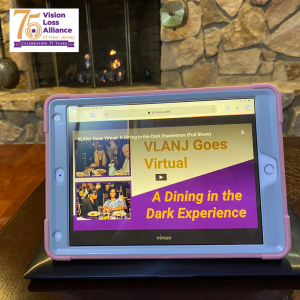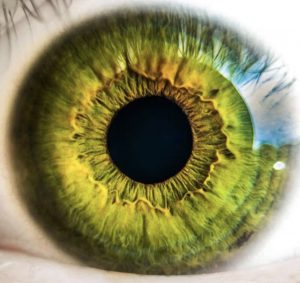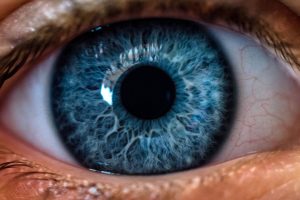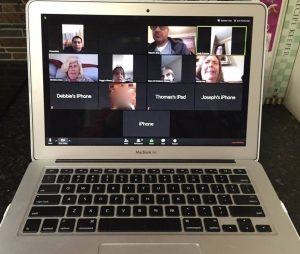by Carly Eden Stokes | Nov 12, 2020 | Blog, Events, News

Vision Loss Alliance of New Jersey’s virtual Dining in the Dark event on Oct. 29 attracted an
estimated 500 viewers — and rave reviews!
The event is now available for viewing on our YouTube page by clicking this link: https://bit.ly/dininginthedarkyoutube
Though the ongoing COVID-19 pandemic precluded an in-person gathering this year, the online fundraiser, our major fundraiser of the year, allowed guests to learn about living without sight. VLANJ participants shared their experiences in cooking and dining, orientation and mobility, and assistive technology.
Some quotes from those who joined us:
“You have created a wonderful program out of the ashes of the pandemic,” Maureen D said.
“Thanks for all of your efforts to continue the excellent services VLANJ has to offer students,”
added Debbie A.
We extend our sincere thanks to all the sponsors and donors who supported the event! We are so glad that we can continue to share this virtual experience via YouTube.
by Carly Eden Stokes | Nov 4, 2020 | Blog, News

Learn more about a new discovery with the potential to reverse vision loss by clicking the link below:
An Oklahoma Medical Research Foundation discovery could pave the way for therapies to reverse vision loss common in premature infants and adults. In a new study appearing in the Proceedings of the National Academy of Sciences, OMRF scientists have identified a compound that could give birth to therapies for a host of eye diseases that include retinopathy of prematurity and diabetic retinopathy.
by Carly Eden Stokes | Sep 1, 2020 | Blog, News
People have unfortunately developed serious vision problems due to the drop in eye care during the COVID-19 pandemic. Learn more by clicking the link below.

A close-up image of a bright blue eye gazes into the camera.
The coronavirus tidal wave has made Dr. Ruth Williams rethink what she considers essential and elective care in her field of ophthalmology – which cases constitute an emergency, and which count as routine.
by Carly Eden Stokes | Aug 27, 2020 | Blog, News, Press
The Grotta Fund for Senior Care awarded VLANJ nearly $10,000 in COVID-19 relief funding! This grant allows us to provide Beyond Sight wellness classes, peer support groups, and technology-focused offerings over Zoom video conferencing through the end of 2020, at no charge to participants. Read more by clicking the link below.

A laptop shows multiple people in a Zoom conference class.
DENVILLE, NJ — Soon after the COVID-19 pandemic began, Vision Loss Alliance of New Jersey pivoted from in-person to virtual programs to keep participants – many of them at high risk for the virus – safely connected.
by Carly Eden Stokes | Aug 19, 2020 | Blog, News
What happens when you inject healthy cells into damaged eyes? Click the article link below to learn more about a recent study on this topic.

A redheaded woman with large green eyes adjusts her glasses as she stares into the camera.
University of Toronto Engineering researchers have developed a new method of injecting healthy cells into damaged eyes. The technique could point the way toward new treatments with the potential to reverse forms of vision loss that are currently incurable. Around the world, millions of people live with vision loss due to conditions such as age-related macular degeneration (AMD) or retinitis pigmentosa.
by Carly Eden Stokes | Aug 12, 2020 | Blog, News
Americans may not be eating enough of the foods and nutrients that they need to protect their eye health. Click the article link below the image to learn what nutrients you may need to be eating more of!

A smiling, laughing woman in a multi-colored shirt holds lemon wedges in front of her eyes in a silly way.
According to the World Health Organization, global average life expectancy continues to rise and is increasing faster than it has at any other time during the last 50 years. Approximately 9 percent of the world’s population is 65 or older; this number is expected to grow to 17 percent by 2050.






